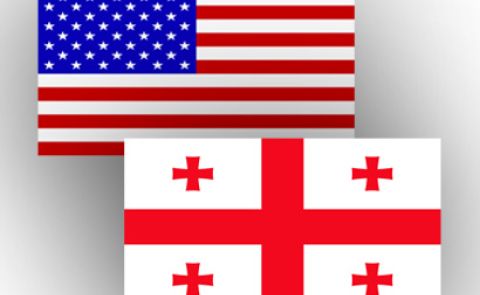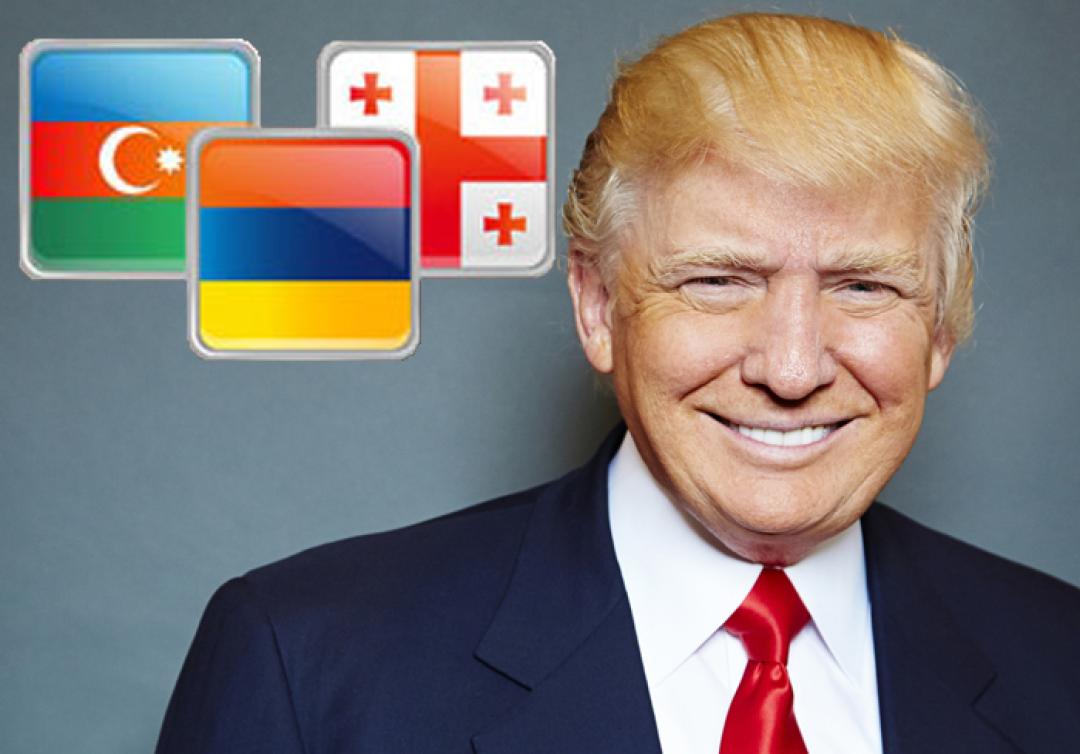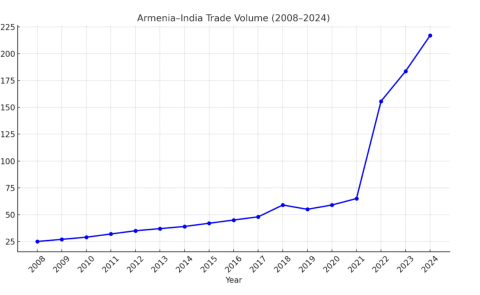
U.S. Engagement in the South Caucasus Under Trump

Trump’s new term ushers in a transactional approach in the US foreign policy. This presents both opportunities and challenges for Washington's long-term strategy towards the South Caucasus.
Over the past years, the South Caucasus—a geopolitically critical region— has faced uncertainties given the deepening rivalry between Russia and the West as well as the US and China. The trend will only exacerbate with Donald Trump’s return to the White House in January 2025. Indeed, as the U.S. refocuses its foreign policy on broader global challenges, its influence in the South Caucasus has diminished. This is particularly so in the case of Georgia and Azerbaijan, while Armenia, by contrast, has seen limited growth in ties with Washington.
America’s foreign policy in Eurasia is in flux, shaped by global developments such as the war in Ukraine, escalating tensions in Gaza, maritime security threats in the Red Sea, and the volatile relationship between Israel and Iran. Despite dealing with its own set of issues, the South Caucasus deeply intertwines with the shifting geopolitical landscape across the region. Despite its strategic importance as a crossroads for energy and transport corridors, the South Caucasus has remained outside the US’ active engagement.
Georgia occupies a pivotal role in Washington’s regional strategy. Its aspirations align with U.S. objectives, particularly in establishing the South Caucasus energy corridor, which could link to the Trans-Caspian Corridor and facilitate trade between Caspian states and Europe. This role has become increasingly critical in light of the war in Ukraine, which underscores the need for alternative trade routes bypassing Russia. Over the past years, Georgia’s role for Washington has grown given the expanding “Middle Corridor” that is being increasingly seen as an alternative route to the Russian corridor.
For the US, a major dilemma with Georgia lies in the fact that the latter has to balance its pro-Western ambitions with growing ties to China. While its longstanding goals of NATO and EU integration connect it to the West, its expanding relationship with Beijing complicates this trajectory amidst intensifying U.S.-China competition. It remains uncertain whether Washington will push Georgia more firmly toward the collective West, further straining Tbilisi’s delicate balance between multiple global powers.
For the Trump administration, tensions between Tbilisi and its Western partners, Brussels and Washington, will pose major challenges. The strained relations stem from Georgia’s stalled progress on NATO and EU integration, compounded by the geopolitical turbulence caused by Russia’s invasion of Ukraine. Simultaneously, Georgia has sought to improve ties with Moscow, although this has not led to a full restoration of diplomatic relations or a significant pivot toward Russia.
For Azerbaijan, U.S. engagement under Trump will likely focus on the country’s strategic importance in the trans-Caspian trade as well as its role as an energy source for the EU. Washington will likely maintain Baku as a key partner, emphasizing the transactional nature of bilateral relations. Yet for Azerbaijan,positive relations with Russia will remain at the forefront of its regional policy, and Baku will be careful not to compromise those with foreign policy moves benefiting the US.
Armenia, in contrast, will occupy a less central role in U.S. regional strategy due to its geographic and political isolation. With a heavy reliance on Russia for security, Armenia’s position is less conducive to deep U.S. engagement. Nevertheless, Washington sees value in encouraging Armenia’s normalization of ties with its neighbors, particularly Turkey, to reduce its dependency on Moscow. It is likewise likely that Washington will increase financial support for the country via various support programs and even expand military cooperation.
Yet the overall picture that the US will face in the South Caucasus will revolve around the idea of a multi-vector foreign policy in which each of the three regional countries will attempt to balance relationships with the US, Russia, China, and regional players. Indeed, Georgia has strengthened ties with China, Armenia is diversifying its defense partnerships, and Azerbaijan navigates a complex web of relations with Russia, Turkey, and Western states. Therefore, one of the optimal scenarios for the US is to support these foreign policy approach as it could serve as a powerful tool guaranteeing that no single power would be able to dominate the South Caucasus.
Overall, the South Caucasus is likely to be peripheral in US strategy as Washington tries to recalibrate its foreign policy away from the wider Black Sea region and parts of the Middle East toward the Indo-Pacific region. The South Caucasus is neither economically critical nor militarily important for US interests in Eurasia. The objective of containing Russian and increasingly Chinese influence will undoubtedly persist, albeit with limited tools.
Emil Avdaliani is a professor of international relations at the European University in Tbilisi, Georgia, and a scholar of Silk Roads. He can be reached on X/Twitter at @emilavdaliani.
See Also


Armenia and India: Building New Bridges in Trade and Strategy

Between Tehran and Tel Aviv: Azerbaijan’s Neutrality Dilemma Amid Rising U.S.-Israel Tensions with Iran

From Neorealism to Neoliberalism: Armenia’s Strategic Pivot in Foreign Policy After the Nagorno-Karabakh Conflict

Georgia and Russia: New Turn in Bilateral Relations

